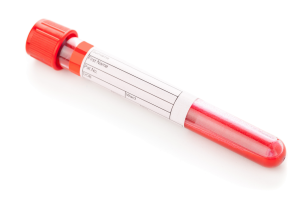22 Jun 2021
News
Nuffield Council on Bioethics raises concerns about the ‘reflex’ prenatal screening test for Down’s syndrome
Results of a study exploring the performance of the ‘reflex’ prenatal screening test have been published today.
The reflex test is a different way of offering non-invasive prenatal testing (NIPT) for Down’s, Edwards’ and Patau’s syndrome. The reflex method involves taking the pregnant woman’s blood at the initial screening stage and automatically sending it to be analysed using NIPT if the woman is found to have at least a 1 in 800 chance of having a fetus with one of the conditions.This contrasts with the system that Public Health England will be rolling out across the NHS next year, in which women found to have a ‘high chance’ initial screening result will be given the opportunity to discuss NIPT with a specially trained healthcare professional and decide if they would like to have NIPT or not.
Catherine Joynson, Assistant Director at the Nuffield Council on Bioethics said: “The reflex study authors believe that recalling women for a discussion before ordering the NIPT test to be a weakness, but we think this step could be an important opportunity to give women and couples information and support.”A report on the ethics of NIPT published by the Council earlier this year concluded that NIPT should only be offered in a way that enables women and couples to make informed choices.
Catherine added: “Information should be provided on the optional nature of testing, the implications of a positive or negative result, the choices that testing may lead to, and up-to-date, balanced information about what it is like to have a child with the condition being tested for. This is unlikely to be covered adequately at the initial booking appointment.”
“The authors say they want to avoid causing ‘needless anxiety’ to women by not giving them the first stage screening result. Screening can be a worrying time but we believe that women and couples should be given the opportunity to decide if they want NIPT or not at this stage, or indeed if they want to proceed straight to diagnostic testing in order to get a diagnosis quickly as possible.”
NIPT for Down’s syndrome has been available in the private healthcare sector in the UK since 2012. NIPT is better at identifying fetuses that might have Down’s syndrome than the combined screening test, the initial screening test, that is currently offered on the NHS, but it is still not 100 per cent accurate. A woman with a ‘high chance result’ would need to have a diagnostic test such as amniocentesis to get a definite diagnosis, which carries a small risk of miscarriage.
Following advice issued by the UK National Screening Committee in 2016, women in England and Wales found to have at least a 1 in 150 chance of having a fetus with Down’s, Edwards’ or Patau’s syndrome following the combined screening test will be offered NIPT on the NHS from 2018. This will apply to around 3 per cent of women who opt for screening. Because NIPT results in fewer false positive results, the hope is that fewer women will have a diagnostic test.The proposal to offer NIPT on the NHS has raised concerns about prenatal screening becoming a routine or expected part of pregnancy, and about the way in which healthcare professionals currently talk about the conditions being screened for.
Catherine said: “It is very positive that Public Health England is developing patient leaflets and training for midwives with the input of the Down’s, Edwards’ and Patau’s syndrome communities in preparation for the roll-out next year. The removal of an opportunity to give information and choice to pregnant women in the screening process, as advocated by the reflex method, seems like a step backwards.”


Share